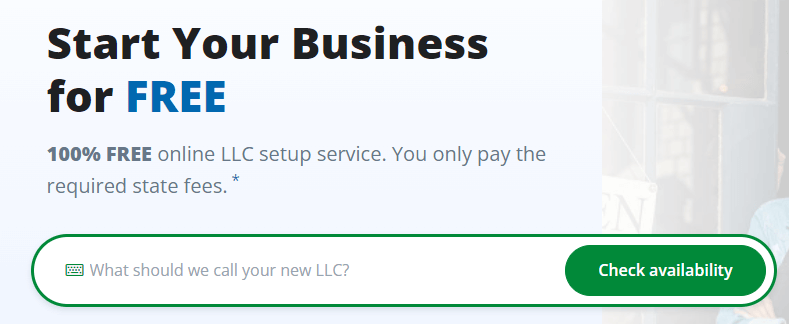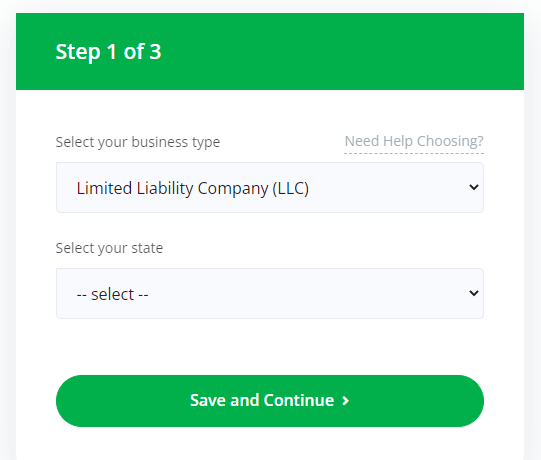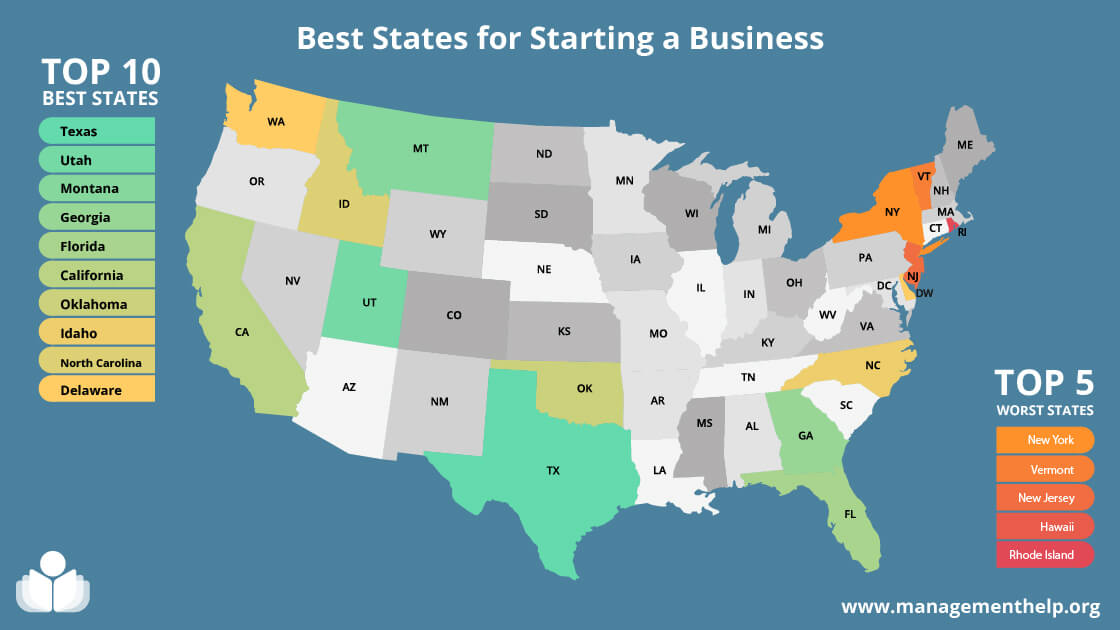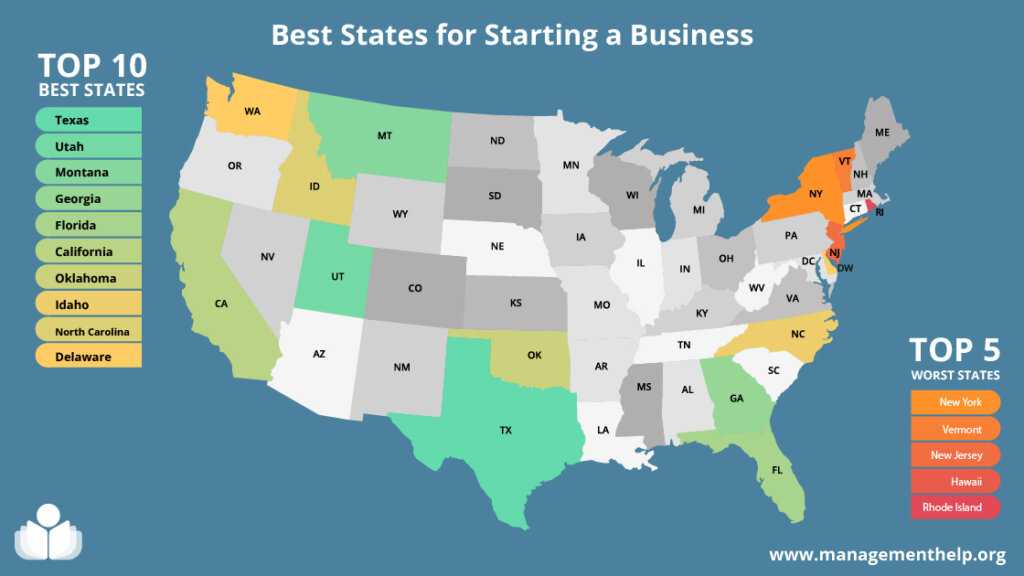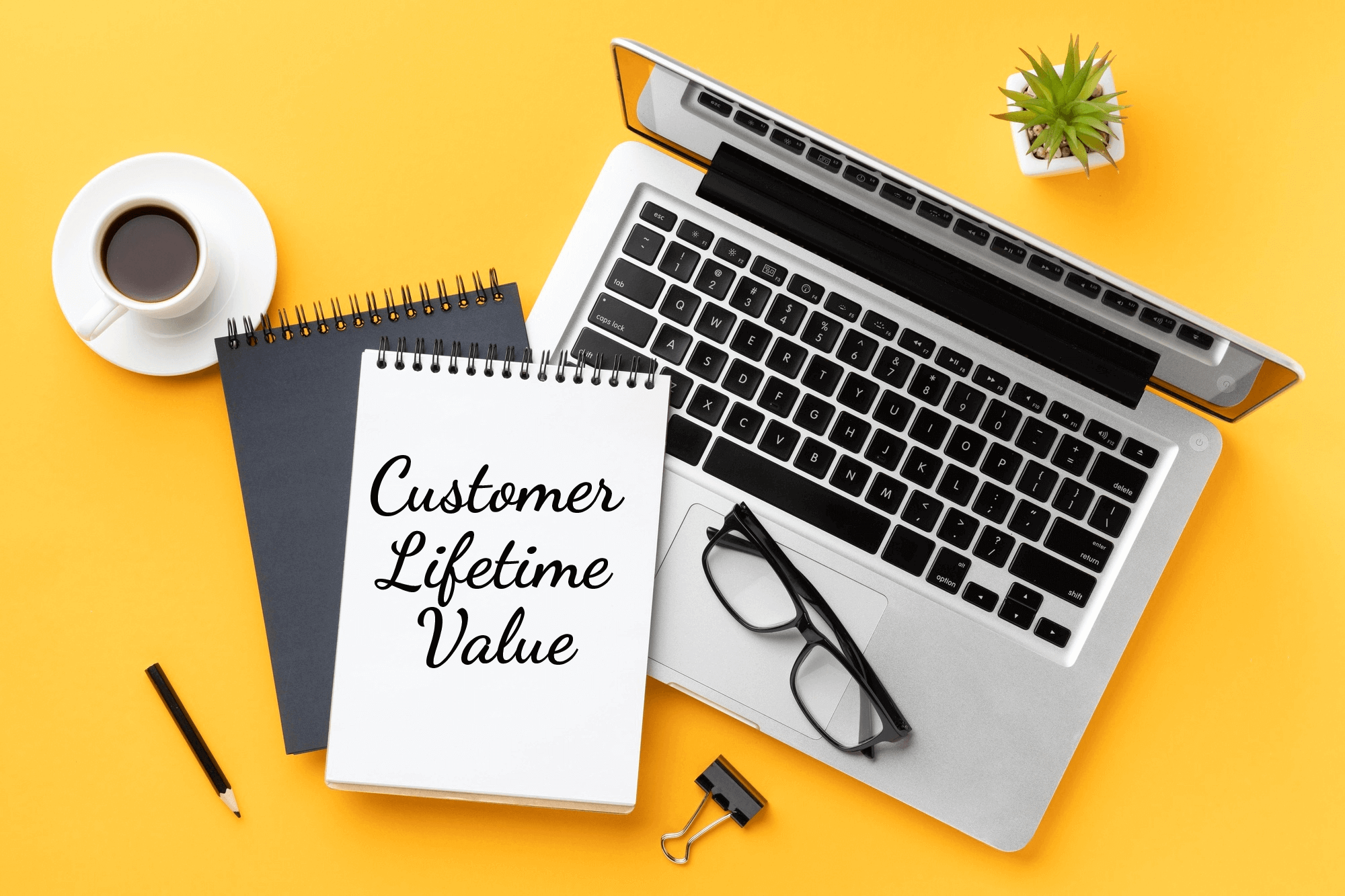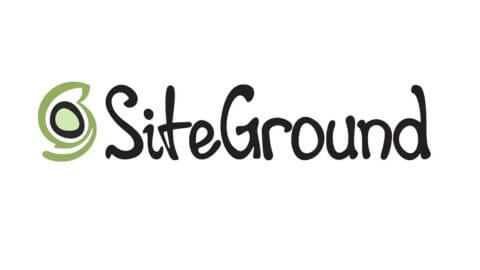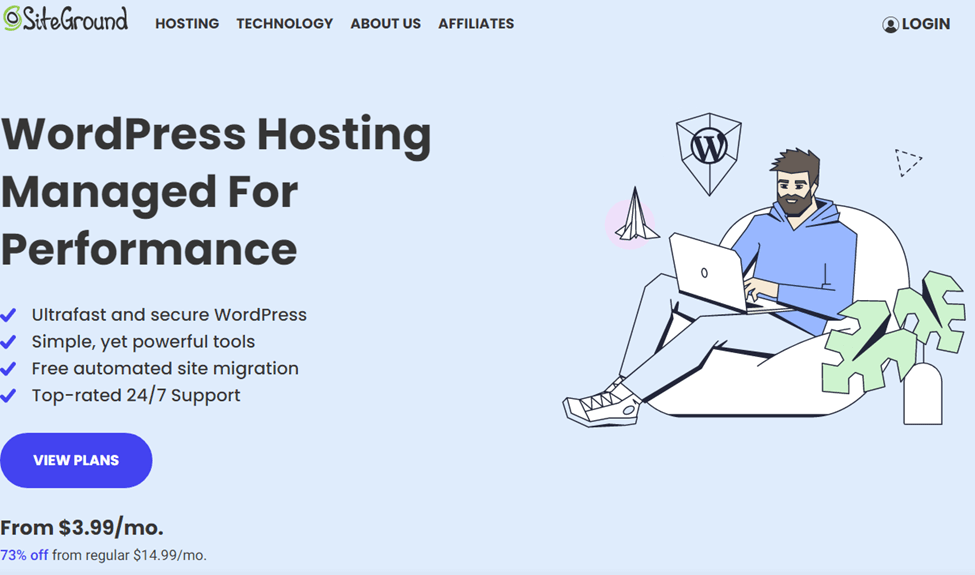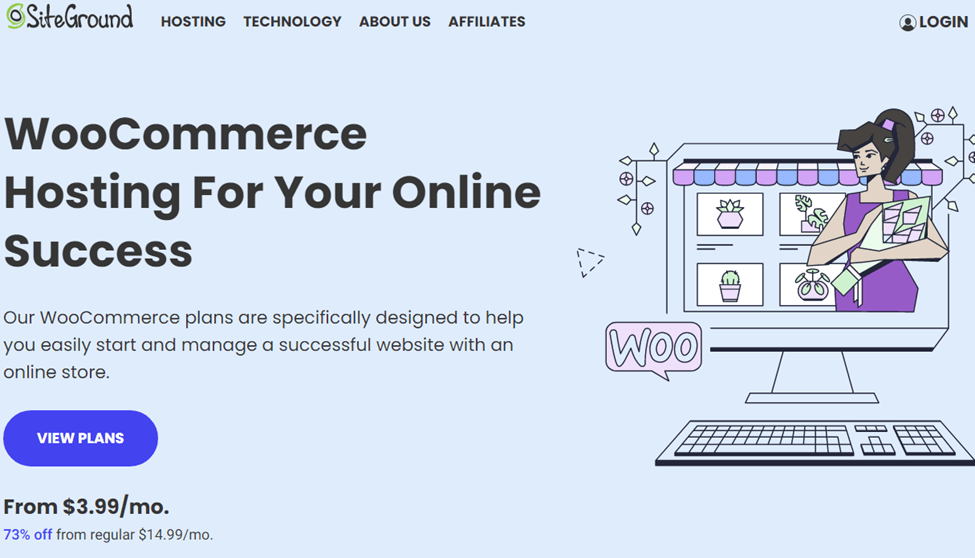Voice over internet protocol (VoIP) makes it possible for any business to develop an efficient and cost-effective communications network. Free VoIP providers are a great place for new companies to lay a solid foundation. Read on to hear about our favorite free VoIP phone services currently on the market.
Looking for a premium service? check out Vonage!
Best Free VoIP Phone Services
- TextNow – Best Overall
- 2ndLine – Best for Android Users
- Google Voice – Best for Sole Proprietorships
- WhatsApp – Best for Customized Conversation
- Zoom – Best for Video Chatting
- Dialpad Talk – Best for Analytics and AI
- OpenPhone – Best for Toll-Free Numbers
Software
Number of Calls
Texting Capability
Phone Number
Platforms
Paid Plan Pricing
Unlimited
Free with activation kit
Free phone number included
Android, iOS, Windows, Mac
$9.99 per month to remove ads
Unlimited
Unlimited
Free phone number included
Android only
Information not provided on the website
Unlimited
Unlimited
Free phone number included
Android, iOS, Windows
$10 to $30 per month
Metered or unlimited calling
Included in phone plan
Included in phone plan
Android, iOS, Windows, Mac
$120 to $240 for phone plans
Unlimited
Unlimited
Included in phone plan or can import a number
Android, iOS, Windows, Mac
$15 to $25 per month
Unlimited
Unlimited
Included in phone plan or can import a number
Android, iOS, Windows, Mac
$10 to $20 per month
TextNow is one of the few apps that provides a legitimately free VoIP phone service with network coverage. You can call or text through WiFi or pick up a SIM card through a $0.99 activation kit. A free service means ads, and additional features like data or voicemail also cost extra. TextNow uses a slower version of T-Mobile’s network, so you may not have the best call quality.
Why we chose it: TextNow offers free coverage over WiFi or wireless network no matter where you’re located in the United States.
- Can use current phone number or obtain a new one
- Unlimited calls and texts
- Usable through WiFi or cellular service
- Littered with ads
- Additional charges for some features
- Call quality isn’t the best
Pricing: TextNow’s base service is entirely free, and the company recoups its costs through ads that pop up while using the app. If you find the ads too cumbersome, you can pay $9.99 to remove them entirely. While best suited for mobile use, you can also download the app for Mac or PC.
You can use WiFi for calls from the get-go, but TextNow does tap into T-Mobile’s wireless service almost anywhere in the country. You’ll need to spend $0.99 to pick up an activation kit with a SIM card for your unlocked phone. Once you have the SIM card, calling and texting are free.
Should you desire to supplement your service with data, TextNow has you covered there as well. Data plans start at $8.99 for 1GB and top out at $27.99 for 5GB. Any data plan above the 1GB mark removes ads and lets you roam for free in Canada or Mexico.
2ndLine offers a free secondary phone line that taps into your current wireless service to provide coverage. It uses the same data and WiFi as your existing plan to give a new local number that you can use as you see fit. You can make unlimited calls and texts anywhere in the U.S. and Canada, but you’ll have to use it often enough to avoid having your account canceled. When issues occur, you can only contact customer service through email where they are often slow to respond.
Why we chose it: 2ndLine is a supplemental service to your current plan. It adds a free local phone number with unlimited calling, texting, and voicemail for Android devices.
- Unlimited calls and texts to U.S. and Canada
- Free voicemail service
- Free local number
- Android only
- Must use the app frequently to avoid termination
- Limited customer service connections
Pricing: 2ndLine itself is entirely free to use but does rely on an existing wireless or WiFi plan to function. The app will link you up with another local number that you can claim alongside the one you already use. Even if you don’t have a wireless plan, you can make use of a WiFi connection to accomplish the same goal. Since it draws from your existing WiFi or wireless network, you have some control over the quality.
To cover the cost of doing business, 2ndLine places ads at strategic locations on the screen. They’re not terribly intrusive, but you’ll know they are there. There’s talk of premium features on 2ndLine’s site to remove ads and unlock other tools, but there’s no mention of costs or what these additional features may be.
Google Voice is an old favorite that links your Google contacts with a single local phone line that you can use. You can’t pick up a toll-free or vanity number for your business, but you can still reach out to anyone within the United States or Canada. If you miss a call, Google’s voicemail will transcribe it for you while filtering out spam. You’ll need to stay active to keep your number, and the service doesn’t work in most parts of the world.
Why we chose it: For a single line, Google Voice features free calling and texting from a local number without consequence. Read our ultimate Google Voice review to learn more.
- Unlimited calling and texting in the U.S. and Canada
- Free voicemail transcription
- Good at blocking spam calls
- Must stay active to keep phone number
- No toll-free or vanity numbers
- Limited to only a few countries
Pricing: As long as you only need a single line for personal use or a business, Google may be the answer for you. You won’t need to worry about any costs for a single local number, and you can call out to anywhere in the U.S. or Canada. Google includes voicemail in its plan so you won’t miss an important message.
As your enterprise grows, you can switch to one of Google Voice’s three business phone plans. For $10 per month, you can make use of up to 10 phone lines domestically. Through the software, you can integrate your Google Calendar or Google Meet to maximize efficiency.
Spending $20 each month unlocks an unlimited number of users and some additional features like an auto attendant and desk phone support. Jumping to Google Voice’s top-level tier at $30 monthly allows calling to some international locations and adds in advanced reporting.
WhatsApp brings traditional wireless plans to the next level, adding VoIP and encryption to protect your data. While both sides of the conversation need WhatsApp to communicate, it is one of the most popular services of its kind. WhatsApp also has a business app you can use to build product catalogs or automate responses. You’ll have to use an existing number to set up your account, and WhatsApp doesn’t generate numbers of its own.
Why we chose it: WhatsApp piggybacks off a current phone service to supply unlimited calling, texting, and video chat to the billions of other WhatsApp users out there.
- Business app with API tools
- Unlimited calls, texts, and video chat
- Robust security with encryption
- Users must have the app to communicate
- No phone number included
- Requires an existing phone number to use
Pricing: Whether for business or personal use, there are no fees for using WhatsApp in any capacity. You’ll have unlimited use of WhatsApp’s entire feature set without ads, including unlimited calls, texting, and video. Even API tools are free to take advantage of, but you’ll need to have the know-how to use them.
WhatsApp does require an existing phone number to set up. You’ll have to deal with any fees surrounding this wireless plan to put WhatsApp to use.
Zoom has one of the most widely used video chatting platforms available, allowing up to 100 users to chat for free, albeit only for 40 minutes at a time. However, Zoom digs deep with a VoIP phone service and chatting that can bring all your communications together under one roof. Expanding into these features can be a bit pricey, especially when some users complain of poor connections at times.
Why we chose it: Zoom adds VoIP phone service and SMS chatting to its stellar video chatting capabilities to maximize business productivity.
- Free 40-minute video meetings for up to 100 people
- Private and group chat during meetings
- Phone plans include a number and texting
- Phone plans can be expensive
- Free video chats limited to 40 minutes
- Some customers complain of lag and slowdowns
Pricing: For all its features, it seems to have an equal number of paid plans to consider. There are a few options to consider in the VoIP phone department alone. Whatever plan you choose, Zoom makes it easy to jump from voice to video chat without skipping a beat.
If you don’t think you’ll be making a ton of calls, consider a pay-as-you-go metered plan. Starting at $120, it contains a phone number and texting capability. You’ll pay for each call you make, with rates to a U.S. phone number at just over 3 cents per minute. You won’t incur any costs for calls coming in, though.
The metered plan has an abundance of extra features to take advantage of as well. These include call recording, voicemail with transcription, and integrations with other apps.
You can use a regional unmetered calling plan to reach anyone in the United States or Canada for a flat $180 per month. Otherwise, this tier shares its feature set with the unmetered plan.
Going one step further, Zoom’s Pro plan for $240 per month introduces a direct dial number and unlimited calling in the 40 countries Zoom currently serves. For whatever reason, Pro doesn’t feature any texting capabilities.
Zoom can add toll-free numbers or additional local numbers to any of these pre-existing plans. Each extra number starts at $60 and goes up from there.
DialPad Talk’s phone service isn’t free, but its 14-day trial is the next best thing. You can break down everything the platform has to offer and decide whether or not to sign up without spending a dime. Real-time data helps keep you in tune with your company’s happenings and uncover missed opportunities. Dialpad is currently limited to the U.S. or Canada, and you’ll have to pay extra for additional phone lines.
Why we chose it: Dialpad Talk introduces budget-friendly VoIP phone plans alongside carefully crafted reports and analytics to ensure you’re on the pulse of your business.
- Unlimited calling and texting
- 14-day free trial
- Real-time analytics and reporting
- Phone service is not free
- Additional phone lines cost extra
- Service limited to the U.S. or Canada
Pricing: DialPad Talk’s VoIP phone service isn’t free, but does include that 14-day trial to check things out. Both plans contain unlimited video meetings for up to 10 people at a time. Read the best VoIP apps to view more options.
The Standard tier comes in at $15 per user each month, featuring unlimited calls and texting to any of your clients or contacts. Through artificial intelligence, you can make use of a sales dialer and learn from your calls. Within your analytics dashboard, you can see call volume over time, missed calls, and hot times to reach potential customers.
At a $25 monthly rate, Pro users receive local number support in over 70 countries. You’re also privy to international texting and integrations with the top business management apps out there.
OpenPhone provides all the functionality required of a phone service while allowing users to take advantage of toll-free numbers at no additional cost. Phone plans aren’t free, but each comes with unlimited calling, texting, and a 7-day trial to put it through its paces. OpenPhone doesn’t have all the integration options that other services offer, and dealing with customer service can be a slow process.
Why we chose it: OpenPhone stands out from the competition by including toll-free numbers as a free option for its voice VoIP service.
- Plans include local or toll-free number
- Free 7-day trial
- Unlimited calling and texting
- Phone plans are not free
- Customer service email support only
- Limited integrations
Pricing: OpenPhone has two paid plans to choose from with a few discernable differences in feature set. It’s possible to try out both of these with the 7-day trial. You’ll benefit from unlimited calls and texts to customers and clients no matter which way you go.
At $10 per month, the Standard plan includes that juicy toll-free number that typically costs $60 with other providers. Additionally, it offers voicemail, call recording, and an auto-attendant to help direct calls where they need to go.
The Premium Plan adds in call transfers, group calling, and basic reporting features. Making the upgrade to this tier will set you back $20 each month.
OpenPhone makes it simple to add new phone numbers into the mix as well. Each additional line costs just $5 per month, whether local or toll-free.
Methodology for the Best Free VoIP Phone Services
We looked at several unique factors when identifying the best free VoIP phone services currently on the market. Below are the most important features we considered when making our decisions.
Unlimited Calls and Texts
Since this free VoIP phone service is likely your primary source of communication with potential customers, you want to make sure there aren’t any limitations on doing so. Scoring a plan with unlimited calling is the best way of ensuring you don’t miss any conversations that could bring revenue your way. Similarly, with the popularity of texting, clients love having this as an option as well.
Phone Numbers
If you don’t already have a business phone number, you’ll want to choose a service that can create one for you. Most platforms can offer up a free local number you can use separate from any personal accounts you may have.
While better than nothing, local numbers don’t give off a professional vibe, and there may be a client out there somewhere who still has to pay for long-distance calling. For an upcharge (unless you’re working with OpenPhone), you can invest in a toll-free number for your business to reach more clients and appear more legitimate.
Should you have a business number you’re already using, some VoIP providers will let you import it into your new account. This is especially important if you have an established business and customers know where to reach you.
Free Features
Free doesn’t usually get you much, but some free VoIP providers will throw in extra features to sweeten the pot. Top examples include voicemail, unlimited calling to Canada, or video chat capabilities.
Device Compatibility
Whether your team members prefer to use Android, iOS, PC, or Mac, you’ll want to make sure you don’t run into any compatibility issues. Most platforms have apps that function across all mobile and computer-based devices, but some don’t.
Paid Plan Pricing
Chances are you’ll be upgrading your plan at some point as your business begins to grow. When picking out a VoIP service, plan ahead so you’re not stuck with limited features or a paywall you can’t overcome. If you do need to jump ship and switch to a new provider, make sure you can carry your phone number with you to avoid confusion with staff and clients.
Frequently Asked Questions (FAQs) for Free VoIP Phone Services
Free VoIP phone services can be confusing to wrap your head around. Below are answers to some of the top questions pertaining to the space.
Bottom Line on the Best Free VoIP Phone Services
Free VoIP phone services are few and far between but offer an excellent introduction to the world of internet communication. These platforms offer fledgling businesses a means to start a framework that can grow with time.
TextNow wins out as the best free VoIP phone service for its ability to use cellular networks in addition to WiFi to stay connected. Users also receive a free business phone number but have to navigate around ads during conversation.












